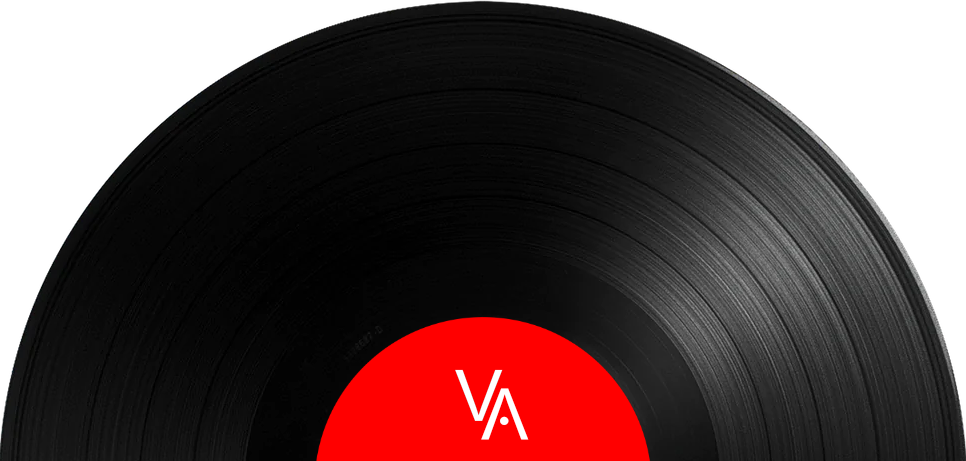
Did you hear the one about the guy who wanted to hire a Molly Hatchet cover band but couldn’t afford them so he had to settle for Molly Hatchet instead? God, I love that joke!
Poor Molly Hatchet! They came along just as “southern rock” was becoming a genre in its own right. We already had the Allman Brothers, Lynyrd Skynyrd, 38 Special and Marshall Tucker - and now we could add Molly Hatchet to the group, a band who named themselves after a prostitute who supposedly mutilated and decapitated her clients. I’m not sure where the warrior horse image they cultivated throughout their career originated.
The list of band members who have come and gone over the years is a long one, and this LP features what most would consider to be the “classic” lineup: namely Danny Joe Brown on vocals and Dave Hlubek on guitar - one of three guitarists - and also the founder of the band.
It’s a fun album, released in 1978. I was 18 and I must have played this album to death. Most of the music being released in ’78 could not even remotely be considered rock and roll, so this was a real treat when it first landed on my turntable. It’s another copy I have now - I really did wear the first one out - and songs such as Bounty Hunter, Gator Country and Dreams I’ll Never See still rock all these years later. But it's not really southern rock, if that's even a real genre (Gregg and Duane Allman hated the term), and lumping Molly Hatchet in with the Allmans and Skynyrd probably hurt them more than it helped.
Molly Hatchet is still around in some form or another, but it was this lineup and this record - and the followup LP called Flirting’ With Disaster - that most people would consider to be the real Molly Hatchet. The other lineups are more like Molly Hatchet cover bands.
Molly Hatchet was founded in 1971 in Jacksonville, Florida - the same place fellow southern rockers Lynyrd Skynyrd hailed from - by guitarist Dave Hlubek. The band toured almost nonstop in support of this record and its followup, building a large following in the process. But then in 1980 lead singer Danny Joe Brown left the band due to health issues. He'd return to the fold two years later, but by then the momentum had been lost.
During his hiatus from the band Brown formed the Danny Joe Brown Band, while his replacement in Molly Hatchet - Jimmy Farrar - brought a vocal style that was distinctly different than Brown's to the group that resulted in a more hard rocking unit. This in turn resulted in the first two albums gaining a sort of "real" Molly Hatchet reputation over the music that followed. And it really was two different bands.
By the time Take No Prisoners was released in 1981 the band's new sound was polished and slick and did not resemble this first record at all. Bass player Banner Thomas left later that year, and then a new drummer, B.B. Borden came on board, after which Farrar left and Brown returned.
Guitarist Holland left for good in 1984 and was replaced by keyboardist John Galvin, whio had played with the Danny Joe Brown band a few years earlier. Critics praised No Guts ... No Glory as the band's return to form, and their fan base responded favourably. This record was followed by The Deed Is Done in 1984, on which Bruce Crump returned to the drum stool.
A double live album, Double Trouble Live, followed, after which the band was dropped by their label, Epic. Guitarist and founder Hlubek left in 1987 and was replaced by Bobby Ingram, who had contributed backup vocals to Double Trouble and had also been a guitarist in the Danny Joe Brown Band.
On July 8, 1990, at a show in Toledo, the band announced that the group would be disbanding immediately following the show that night. A greatest hits collection followed that featured two newly recorded but relatively unexciting songs.
During the front end of the 1990s one form or another of Molly Hatchet played some shows and toured but did not record again until 1995, when they began working on a new studio album. That same year Brown once again left due to continuing health problems, and Jimmy Farrar was brought back.
During the rest of the 1990s the band's line-up did not feature any original members. It was never really Molly Hatchet, and the fans knew it.
Danny Joe Brown died on March 10, 2005, at the age of 53 from kidney failure. On June 19, 2006, Duane Roland died, also at 53 years of age. Between 2014-19 a wave of death crashed over former band members: bass guitarist Riff West died as a result of a car accident in November, 2014; drummer Bruce Crump died in March, 2015 of throat cancer; original bassist Banner Thomas died from complications of pneumonia and rheumatoid arthritis in April, 2017; Dave Hlubek died of a heart attack in September of the same year; Jimmy Farrar died of heart failure in October, 2018, and singer Phil McCormack died in April, 2019.
For some reason a band called Molly Hatchet continues to tour, although it's not really Molly Hatchet. It really is a Molly Hatchet cover band these days.
But we can always go back to this record and hear the real deal. It's a good record, as is its followup, and it would have been really cool to see what other music this lineup could have made as they matured together in the way their contemporaries were able to do.
Did you hear the one about the guy who wanted to hire a Molly Hatchet cover band but couldn’t afford them so he had to settle for Molly Hatchet instead? God, I love that joke!
Poor Molly Hatchet! They came along just as “southern rock” was becoming a genre in its own right. We already had the Allman Brothers, Lynyrd Skynyrd, 38 Special and Marshall Tucker - and now we could add Molly Hatchet to the group, a band who named themselves after a prostitute who supposedly mutilated and decapitated her clients. I’m not sure where the warrior horse image they cultivated throughout their career originated.
The list of band members who have come and gone over the years is a long one, and this LP features what most would consider to be the “classic” lineup: namely Danny Joe Brown on vocals and Dave Hlubek on guitar - one of three guitarists - and also the founder of the band.
It’s a fun album, released in 1978. I was 18 and I must have played this album to death. Most of the music being released in ’78 could not even remotely be considered rock and roll, so this was a real treat when it first landed on my turntable. It’s another copy I have now - I really did wear the first one out - and songs such as Bounty Hunter, Gator Country and Dreams I’ll Never See still rock all these years later. But it's not really southern rock, if that's even a real genre (Gregg and Duane Allman hated the term), and lumping Molly Hatchet in with the Allmans and Skynyrd probably hurt them more than it helped.
Molly Hatchet is still around in some form or another, but it was this lineup and this record - and the followup LP called Flirting’ With Disaster - that most people would consider to be the real Molly Hatchet. The other lineups are more like Molly Hatchet cover bands.
Molly Hatchet was founded in 1971 in Jacksonville, Florida - the same place fellow southern rockers Lynyrd Skynyrd hailed from - by guitarist Dave Hlubek. The band toured almost nonstop in support of this record and its followup, building a large following in the process. But then in 1980 lead singer Danny Joe Brown left the band due to health issues. He'd return to the fold two years later, but by then the momentum had been lost.
During his hiatus from the band Brown formed the Danny Joe Brown Band, while his replacement in Molly Hatchet - Jimmy Farrar - brought a vocal style that was distinctly different than Brown's to the group that resulted in a more hard rocking unit. This in turn resulted in the first two albums gaining a sort of "real" Molly Hatchet reputation over the music that followed. And it really was two different bands.
By the time Take No Prisoners was released in 1981 the band's new sound was polished and slick and did not resemble this first record at all. Bass player Banner Thomas left later that year, and then a new drummer, B.B. Borden came on board, after which Farrar left and Brown returned.
Guitarist Holland left for good in 1984 and was replaced by keyboardist John Galvin, whio had played with the Danny Joe Brown band a few years earlier. Critics praised No Guts ... No Glory as the band's return to form, and their fan base responded favourably. This record was followed by The Deed Is Done in 1984, on which Bruce Crump returned to the drum stool.
A double live album, Double Trouble Live, followed, after which the band was dropped by their label, Epic. Guitarist and founder Hlubek left in 1987 and was replaced by Bobby Ingram, who had contributed backup vocals to Double Trouble and had also been a guitarist in the Danny Joe Brown Band.
On July 8, 1990, at a show in Toledo, the band announced that the group would be disbanding immediately following the show that night. A greatest hits collection followed that featured two newly recorded but relatively unexciting songs.
During the front end of the 1990s one form or another of Molly Hatchet played some shows and toured but did not record again until 1995, when they began working on a new studio album. That same year Brown once again left due to continuing health problems, and Jimmy Farrar was brought back.
During the rest of the 1990s the band's line-up did not feature any original members. It was never really Molly Hatchet, and the fans knew it.
Danny Joe Brown died on March 10, 2005, at the age of 53 from kidney failure. On June 19, 2006, Duane Roland died, also at 53 years of age. Between 2014-19 a wave of death crashed over former band members: bass guitarist Riff West died as a result of a car accident in November, 2014; drummer Bruce Crump died in March, 2015 of throat cancer; original bassist Banner Thomas died from complications of pneumonia and rheumatoid arthritis in April, 2017; Dave Hlubek died of a heart attack in September of the same year; Jimmy Farrar died of heart failure in October, 2018, and singer Phil McCormack died in April, 2019.
For some reason a band called Molly Hatchet continues to tour, although it's not really Molly Hatchet. It really is a Molly Hatchet cover band these days.
But we can always go back to this record and hear the real deal. It's a good record, as is its followup, and it would have been really cool to see what other music this lineup could have made as they matured together in the way their contemporaries were able to do.


